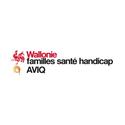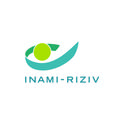In short
An interoperable architecture is essential to strengthen preparedness for potential future pandemics. Therefore, an overarching Belgian infrastructure called be.Prepared (Previously Be-HERA) has been developed to improve the surveillance of infectious diseases. be.Prepared supports the central collection, processing, and linking of clinical/epidemiological data with microbial genomic indicator data derived from Whole Genome Sequencing (WGS) analysis in a secure manner.
For additional information about the start of the project, please consult the HERA-Incubator-WGS webpage.

Project description
HERA-BE-WGS, a consolidation of the HERA-Incubator-WGS initiative
The project continues to improve the management and exchange of microbial genomic and clinical/epidemiological data by establishing an overarching national eHealth architecture, called be.Prepared (Previously Be-HERA). This landscape consists of a central data warehouse for data collection and storage of National Reference Centre (NRC) data (i.e. clinical, epidemiological, and classical microbiological results) and genomic microbiological results, as well as a central BioIT platform and a central NRC platform. The harmonized, standardized processing and reporting of these data types in be.Prepared facilitates the timely and efficient identification of possible new variants or other emerging infectious diseases. The current initiative will focus on data exchange and retrieval for reporting to various public health stakeholders. Data export is key in enabling the use of existing surveillance and visualization tools outside the healthdata.be platform and ensure national and international reporting.
Additionally, there is also a need for a minimum data flow beside the microbial genomic data to the central BioIT platform, which will allow the use of genomic analysis software to perform automated cluster detection and interactive cluster exploration, preferably to be made available in the NRC platform environment at a later stage of the project. Data governance and authentication for access to data in all components of the national eHealth infrastructure is crucial, and procedures are defined in consultation with experts both within and outside Sciensano.
The high-level design of the be.Prepared infrastructure
The concrete data architecture, its infrastructures and the data flows between these infrastructures, are described as the be.Prepared architecture or landscape. A high-level design of this landscape is described below:

Figure 1: An overview of the be.Prepared architecture with its different components. Clinical and Epidemiological data is collected at the level of the National Reference Centers (NRCs) and sent to Healthdata.be. Genomic data will be transferred to the BioIT platform where primary processing of the results will occur. From the central BioIT platform, genomic data are sent to the central NRC platform whereby connectivity is in place with the Healthdata.be platform to combine clinical, epidemiological, and microbial genomic data within the NRC platform according to their mandates. The Healthdata.be platform covers the pseudonymized data warehouse that can be used for data reporting and research.
Project investigators
This project is made possible by the unwavering commitment of the members of the HERA-Incubator-WGS and HERA-BE-WGS initiatives for infectious diseases.
- Heleen Masset, Service of Epidemiology of Infectious Diseases, Sciensano
- Amber Van Laer, Service of Epidemiology of Infectious Diseases, Sciensano
- Christine Verfaillie, Service of Epidemiology of Infectious Diseases, Sciensano
- Dieter Van Cauteren, Service of Epidemiology of Infectious Diseases, Sciensano
- Ruben Brondeel, Service of Epidemiology of Infectious Diseases, Sciensano
- Nathalie Bossuyt, Service of Epidemiology of Infectious Diseases, Sciensano
- Yinthe Dockx, Service of Epidemiology of Infectious Diseases, Sciensano
- Koen Blot, Service of Epidemiology of Infectious Diseases, Sciensano
- Karin De Ridder, Scientific Direction Epidemiology and Public Health, Sciensano
- Michaël Kelchtermans, Service of Transversal activities in Applied Genomics, Sciensano
- Benoît Bergk Pinto, Service of Transversal activities in Applied Genomics, Sciensano
- Kevin Vanneste, Service of Transversal activities in Applied Genomics, Sciensano
- Raf Winand, Service of Transversal activities in Applied Genomics, Sciensano
- Ann-Stephan Gori, Service of Transversal activities in Applied Genomics, Sciensano
- Kato Milis, Service of Transversal activities in Applied Genomics, Sciensano
- Stefan Hoffman, Service of Transversal activities in Applied Genomics, Sciensano
- Sigrid De Keersmaecker, Service of Transversal activities in Applied Genomics, Sciensano
- Lara Van den Bossche, Service of Transversal activities in Applied Genomics, Sciensano
- Nancy Roosens, Service of Transversal activities in Applied Genomics, Sciensano
- Philippe Herman, Scientific Direction Biological health risks, Sciensano
- Florian Commans, Service of Bacterial Diseases, Sciensano
- Jolein Laumen, Service of Bacterial Diseases, Sciensano
- Wesley Mattheus, Service of Bacterial Diseases, Sciensano
- Pieter-Jan Ceyssens, Service of Bacterial Diseases, Sciensano
- An Van Den Bossche, Service of Bacterial Diseases, Sciensano
- Vanessa Mathys, Service of Bacterial Diseases, Sciensano
- Sarah Denayer, Service of Viral Diseases, Sciensano
- Cyril Barbezange, Service of Viral Diseases, Sciensano
- François Dufrasne, Service of Viral Diseases, Sciensano
- Sofie Leen, Service of Viral Diseases, Sciensano
- Inne Nauwelaers, Service of Viral Diseases, Sciensano
- Steven Van Gucht, Service of Viral Diseases, Sciensano
- Katelijne Dierick, Scientific Direction Infectious diseases in humans, Sciensano
- Eric Mairiaux, Service of LIMS, Sciensano
- Kenneth Eeckeman, Direction Information and Communication Technology, Sciensano
- Marijke Pauwels, Service of Healthdata.be, Sciensano
- Kurt Vanbrabant, Service of Healthdata.be, Sciensano
- Jamal Rabaia, Service of Healthdata.be, Sciensano
- Johan Van Bussel, Service of Healthdata.be, Sciensano
- Katrien Alpaerts, Service of Healthdata.be — Strategy and external positioning (SEP), Sciensano
- Jean-Pierre Mathey, Service of Healthdata.be — Strategy and external positioning (SEP), Sciensano
- Giulia Leonetti, Service of Healthdata.be — Strategy and external positioning (SEP), Sciensano
- Daphné Rasier, Service of Healthdata.be — Strategy and external positioning (SEP), Sciensano
- Ilse Dossche, Service of Healthdata.be — Strategy and external positioning (SEP), Sciensano
- Gaëtan Muyldermans, Service of Healthdata.be — Strategy and external positioning (SEP), Sciensano
- Sofie De Broe, Strategy and external positioning (SEP), Sciensano
- Roel Heijlen, Service of Quality, (bio)safety and environment, Sciensano
- Arnaud Capron, Service Quality of Laboratories, Sciensano
- Jorgen Stassijns, Service Crisis coordination, Sciensano
Results
EU-deliverables
Please consult the submitted EU-deliverables on the following official webpage.
Legal framework
Information Security Committee (ISC):
For the overarching national public health information system, called be.Prepared (Previously Be-HERA), the Belgian ISC was asked to approve the data collection in the following way (Only available in Dutch):
- On a generic technical basis for the collection and exchange of personal data for health purposes in relation to Be-HERA (Approval on 12.09.2021)
- On an application basis for the collection and exchange of personal data for health purposes via Be-HERA with regard to the reporting of the National Reference Centres for Human Microbiology. (Approval on 07.02.2023)
Privacy Notice
The Privacy Notice explains to you clearly, clearly, and simply but correctly why and how Sciensano collects, uses, and protects personal information (Only available in Dutch): Privacy Statement be.Prepared
Valorization
Kick-off HERA-BE-WGS
- On 11.01.2023, the official HERA-BE-WGS kick-off meeting took place. The presentation of this meeting is publicly available.
be.Prepared for (inter)national conferences
- On 10.05.2023, the conference on Applied Bioinformatics and Public Health Microbiology (ABPHM) took place in Hinxton. A scientific poster entitled “Development of a Belgian national cloud-based bioinformatics platform for centralised pathogen characterisation and outbreak detection” was designed and presented for this purpose.
- On 11.05.2023, Sciensano’s Symposium on Infectious Diseases (SsID) took place in Brussels. For the HERA-BE-WGS action, a scientific poster entitled “Towards a new (H)ERA: Developments to strengthen infectious diseases surveillance and pandemic preparedness” and flyer were designed.
- On 15.03.2024, the conference on Antimicrobial Resistance — Genomes, Big Data and Emerging Technologies took place in the UK. The agenda included a presentation “The ambitious plan to integrate genomics and patient data in the surveillance of infectious disease and AMR in Belgium: Experiences from be.Prepared”.
- On 03.04.2024, the HERA Sequencing Symposium took place in Brussels. A short presentation entitled “Exploring Grants & Actions for advancing laboratory and digital capacities for Health Emergency Preparedness and Response: HERA-BE-WGS” was given to briefly give a status update of the project to the Member States.
- On 26.04.2024, ESCMID Global (formerly ECCMID) took place in Barcelona. A scientific poster entitled “be.Prepared to increase Belgian integration of health data as a way of strengthening preparedness for infectious diseases” was designed and presented for this purpose.
- On 07.05.2024, the AMR Conference of the Belgian Presidency took place in Brussels. The agenda included a presentation “Transition to timely genomic resistance surveillance” which referred to the actions already taken in the project.
- On 26.09.2024, the second U4S workshop “One Health” took place in Brussels. The agenda included a general presentation of the project.
- On 22.05.2025, Sciensano’s Symposium on Infectious Diseases (SsID) took place in Brussels. A scientific poster entitled “Salmonella spp. as a be.Prepared Case Study for Integrating Microbial Genomic and Health Data in Public Health Surveillance” was designed.
- Also on 22.05.2025, the conference on Applied Bioinformatics and Public Health Microbiology (ABPHM) took place in Hinxton. The agenda included a presentation on the cloud-based bioinformatics and coupled NRC usability platform for integrated genomic epidemiological analysis.
- On 04.06.2025, the HERA conference on Strengthening Genomic Sequencing Capacities for Outbreak Preparedness and Response took place in Brussels. The agenda included both a panel discussion and a presentation on the project.
- On 25.06.2025, the international symposium on Salmonella and Salmonellosis (I3S) took place in Saint-Malo. A scientific poster
 be.prepared_i3s_june2025.pdf ”A BIGSdb-based central usability platform integrating microbial genomic, clinical and epidemiological data to strengthen the surveillance of Salmonella enterica in Belgium” was designed and presented for this purpose.
be.prepared_i3s_june2025.pdf ”A BIGSdb-based central usability platform integrating microbial genomic, clinical and epidemiological data to strengthen the surveillance of Salmonella enterica in Belgium” was designed and presented for this purpose.
HERA-BE-WGS closing conference
- On 16.06.2025, the HERA-BE-WGS closing conference took place in Elsene. Consult the following presentation if interested.
Note: All documentation is available in English, unless communicated differently.
HERA-BE-WGS project has received funding under the EU4Health Programme (EU4H-2022-DGA- MS-IBA-1) with the Grant Agreement no. 101113063. Views and opinions expressed are however those of the author(s) only and do not necessarily reflect those of the European Union or the European Health and Digital Executive Agency. Neither the European Union nor the granting authority can be held responsible for them.
Sciensano's project investigator(s):
Partners










